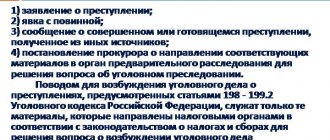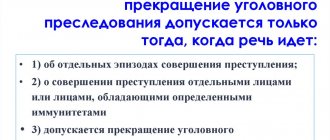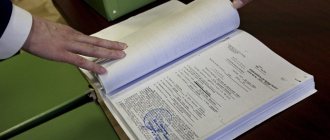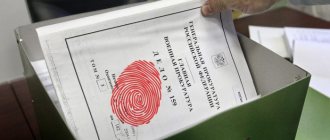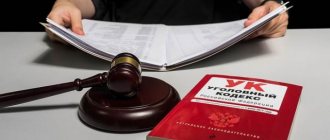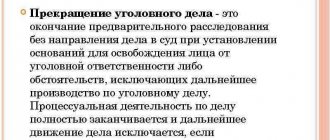1. The preliminary investigation is suspended if one of the following grounds exists: 1) the person to be charged as an accused has not been identified; 2) the suspect or accused has disappeared from the investigation or his whereabouts have not been established for other reasons; 3) the location of the suspect or accused is known, but there is no real possibility of his participation in the criminal case; 4) a temporary serious illness of the suspect or accused, certified by a medical report, prevents his participation in investigative and other procedural actions.
2. The investigator shall issue a resolution to suspend the preliminary investigation, a copy of which shall be sent to the prosecutor.
3. If two or more accused are involved in a criminal case, and the grounds for suspension do not apply to all the accused, then the investigator has the right to separate and suspend the criminal case in relation to individual accused into separate proceedings.
4. On the grounds provided for in paragraphs 1 and 2 of part one of this article, the preliminary investigation is suspended only after its period has expired. On the grounds provided for in paragraphs 3 and 4 of part one of this article, the preliminary investigation may be suspended until the end of its term.
5. Before suspending the preliminary investigation, the investigator carries out all investigative actions that can be carried out in the absence of the suspect or accused, and takes measures to search for him or to identify the person who committed the crime.
6. If, in a criminal case, property is seized in accordance with part three of Article 115 of this Code, the investigator, before suspending the preliminary investigation, is obliged to establish circumstances confirming that the seized property was obtained as a result of the criminal actions of the suspect, accused, or was used or intended to be used as tools, equipment or other means of committing a crime or for the financing of terrorism, extremist activity (extremism), an organized group, an illegal armed group, a criminal community (criminal organization), and also consider the issue of possible changes in restrictions related to the possession, use, disposal of the arrested property, or to cancel the seizure imposed on the property.
7. If the grounds for applying a measure of procedural coercion in the form of seizure of the property of persons who are not suspects, accused or persons legally liable for their actions have not disappeared, the investigator, with the consent of the head of the relevant investigative body, or the investigator, with the consent The prosecutor initiates a corresponding petition before the court in the manner established by Article 115.1 of this Code.
(Part additionally included from September 15, 2015 by Federal Law of June 29, 2015 N 190-FZ)
What is the article of the Code of Criminal Procedure about?
Suspension of a criminal case is a temporary break in the execution of compulsory procedural actions by law enforcement officials. The investigator takes such a forced measure if it is not possible to complete the investigation, since there is no suspect or accused. If the case is suspended, then no investigative measures are taken, no coercive measures are used, and the period of criminal proceedings does not expire.
Before the investigation is suspended, all information is obtained through interrogations, searches and other procedural procedures, but after the suspension, all this is prohibited. In a suspended case, in order to establish the identity of the criminal and resume proceedings, the investigator has the right to request previously found items and documents, receive explanations and certificates from an expert, and send inquiries to the inquiry body. The investigator may petition to select a more severe preventive measure for an escaped criminal, and if he is discovered, detain him for 48 hours.
The investigator and interrogating officer are obliged to establish the location of the missing criminal themselves; for this they put him on the wanted list. To put a person on the wanted list, a decree is issued or the search is indicated in the decree suspending the investigation. It is important to note that people can be put on the wanted list both at the stage of the preliminary investigation and at the stage of its suspension.
Basic provisions
All decisions that the investigator makes during the preliminary investigation must be reasoned and have legal grounds. It is impossible to suspend the investigation based on desire or lack of information; it is not legal. But this can be done if one of the established grounds is present.
Article 208 of the Code of Criminal Procedure describes the following grounds for suspending a criminal case:
- the person who committed the crime has not been identified (Article 208 of the Code of Criminal Procedure of the Russian Federation, part 1, paragraph 1);
- the suspect fled the investigation and his whereabouts are unknown;
- the location of the accused is known, but there is no real possibility of involving him in criminal proceedings;
- the suspect or accused has been diagnosed with a temporary serious illness, which is confirmed by medical reports.
If the above grounds are present, the investigator issues a decision to suspend the case. That is, it will not be closed, but if the situation changes, it will be reopened again, and investigative actions will begin from where they left off.
In criminal proceedings, there are also conditions for suspension of proceedings. By themselves, they cannot suspend the procedure, but without the presence of some of them, the investigation will not progress. The first condition for suspending the case is the implementation of all investigative measures that are possible in the absence of the accused and the circumstances leading to the termination of the case. In this case, the investigator has carried out all the necessary procedures, but cannot transfer the case to court without interrogating the suspect. In addition, he also cannot close the case and, as a result, it remains in a “suspended” state. All that remains is to wait for any changes.
There are also special conditions that may affect individual grounds, for example, the expiration of the preliminary investigation period. If the accused has not been identified, and even if he has been identified, but his whereabouts are unknown, the proceedings are suspended, because they cannot last forever.
If, before the investigation was suspended, a specific person was charged or suspected of committing a crime, it will not be possible to close it. It is necessary to conduct an investigation until the statute of limitations expires or the violator is found. The case can also be tried in absentia if charges have already been filed.
Organization or participation in an illegal armed group in Article 208 of the Criminal Code of the Russian Federation
Resolution to suspend the investigation
The resolution is the main document that confirms the fact that the investigation was carried out, but at a certain stage it was suspended. The document is issued by the investigator and submitted to the prosecutor for approval.
The resolution must contain the following information:
- the event of the crime under investigation;
- qualification of the crime;
- a person accused of committing a crime, if the identity has been established;
- factual circumstances that serve as the basis for suspending the proceedings;
- conditions and legal basis for suspension.
If the suspension of proceedings is possible only after the expiration of the investigation period, then the resolution must indicate that all possible measures were carried out in the absence of the accused. The legislator defines clear deadlines for suspending the preliminary investigation; they expire 2 months from the date of initiation of criminal proceedings.
Duration of suspension
Criminal proceedings may be suspended for an unlimited period. Most often, the process is resumed when new circumstances arise. Also, the case may be re-examined if the statute of limitations for criminal prosecution under a specific article has expired. In such cases, the proceedings are resumed in order to make a decision to terminate the criminal case.
If there is a suspect, the criminal process can only be terminated with his consent. If the accused is absent, then termination occurs automatically due to lack of evidence.
The statute of limitations may be suspended if the attacker is hiding from the investigation and is wanted. The countdown resumes when the wanted person is apprehended.
Comments on Article 208 of the Code of Criminal Procedure
If a criminal case is suspended, not many people know what this means. Some citizens believe that this is a "dead end" in the investigation, but this is not the case.
The proceedings will be resumed in the presence of certain circumstances, which include:
- eliminating the grounds that served as the reason for suspending the case;
- carrying out procedural actions that can be carried out without the personal presence and participation of the accused;
- cancellation by an authorized person of a decision to suspend the case.
One of the conditions for resuming the investigation is also that the statute of limitations for bringing the offender to justice has not expired.
The procedure for resuming a preliminary investigation that has been suspended consists of three main stages. Initially, the investigator must issue a new ruling indicating the need to resume the preliminary investigation. Next, he notifies the head of the investigation department and the prosecutor about his decision. Interested parties should also be notified.
If the period of investigation in the case has not expired, the investigator may instruct the investigative body to establish the identity of the criminal or his place of residence, as well as choose a preventive measure if one has not previously been selected. If a preventive measure has already been chosen, they decide to keep it or change it.
The procedure and timing for separating criminal case materials into separate proceedings under the Code of Criminal Procedure of the Russian Federation, Article 155
If the reason for the suspension of the case was the illness of the accused or the mental state of the criminal requiring medical correction, he is sent for compulsory treatment. When there is no longer a need for medical services, the investigation is resumed.
When there is no hope for recovery, the investigator passes the decision to the prosecutor, who, in turn, sends the documents to the court, where the judge decides to close the case or leave the criminal in a medical facility.
There are a number of cases where several defendants appear in a case, but there are grounds for suspending the investigation in relation to only one of them. In such situations, the authorized person must separate the case into separate proceedings and suspend the investigation only in relation to it. The remaining two accused will be investigated on a general basis.
The case is suspended: what does it mean?
Suspension of proceedings in a case is a break in procedural activities. The period for conducting a preliminary investigation is specified in Article 162 of the Code of Criminal Procedure of the Russian Federation. In accordance with paragraph 1 of this article, all investigative measures must be completed within two months from the date of initiation of the criminal case.
If investigators and interrogators cannot invest within the established period due to objective reasons, they have the right to initiate the suspension of investigative activities. The proceedings may be resumed if new circumstances arise.
What does judicial practice show under this article?
Judicial practice shows that the suspension of the investigation most often affects serious and especially serious crimes. The fact is that having committed a serious violation of the law, the criminal understands that he faces a long prison term, and in order to avoid such a fate, he hides from the investigation. In cases of moderate gravity, investigations are suspended less frequently.
The principle of suspending a case can be considered using the example of an article for murder. Citizen Petrov, being in a drunken stupor, stabbed his neighbor in the chest several times with a knife. Realizing what he had done, he ran away from the victim’s apartment. Coming out of the entrance, he was noticed by neighbors, who called the police, because he was covered in blood and threw the knife into the trash.
Investigators who arrived at the scene of the incident carried out all the necessary procedures and initiated criminal proceedings. The identity of the culprit was known, but the place of residence could not be established for two months. The investigator decided to suspend the investigation and issued a resolution to put the subject on the wanted list.
Six months later, the subject gave himself away by paying with an old credit card in one of the stores in a neighboring city. The investigator resumed the proceedings and sent the body of inquiry to the place of the criminal’s last stay. As a result, the latter was detained and handed over to the court, since his guilt was fully proven.
What decisions are most often made under Article 208 of the Code of Criminal Procedure?
Suspension of investigative actions is a fairly common procedural procedure. It is not always possible, even with the active work of law enforcement agencies, to establish the identity of the culprit, his location and solve the crime. If there is no opportunity to close the case, then the investigator makes a forced pause in the investigation. It makes it possible to free up time to work on other criminal proceedings in which there are no obstacles to bringing them to trial.
Suspension of proceedings is possible not only at the stage of preliminary investigation, but also at the stage of trial.
Problems of application of Article 208 of the Code of Criminal Procedure of the Russian Federation
If employees of the investigative department cannot complete the preliminary investigation on time, the legislator gives them the right to take a forced pause. Sometimes a stay order allows the criminal to manipulate his position.
The most problems arise if the case is suspended due to a serious illness. The Code of Criminal Procedure does not provide a clear list of pathologies that may cause suspension of procedural actions. From a medical point of view, not every serious illness prevents a criminal from participating in the investigation; for example, heart failure, diabetes mellitus and hepatitis allow a person to lead an active lifestyle for a long time, although they are considered serious pathologies.
At the same time, a relatively mild disease, for example, dysentery, does not allow the patient to even get out of bed. Ambiguity in the interpretation of “serious illness” often leads to unlawful decisions of the investigator and prosecutor, as well as violation of constitutional human rights.
Reasons
Suspension of a criminal case is an important procedural procedure. It is strictly regulated, and the grounds for carrying out this action are specified in the Code of Criminal Procedure in a closed list. Let's look at it in more detail below.
At the investigation stage
The list of relevant grounds is contained in Article 208 of the Code of Criminal Procedure of the Russian Federation.
Unidentified person
In most cases, establishing the identity of a citizen who has committed a criminal act requires certain actions and time. Thus, the task of law enforcement agencies is to search for the culprit and carry out checks for possible involvement in the commission of a crime.
In many cases, a “hot pursuit” search brings results. However, in some situations, in order to establish the circle of suspects, criminological examinations and other operational investigative measures are required. And even in this case, the person involved cannot always be identified. If the investigation period comes to an end, the person conducting the investigation decides to suspend it . Often, in the professional jargon of law enforcement officers, such cases are called “hangings.”
The suspect fled
In some cases, it is not difficult to establish a person’s involvement in committing a criminal offense, but it is not possible to establish his whereabouts. In this case, the case is suspended and the citizen is put on the wanted list.
If there are no search results for the suspect, the investigative authorities initiate a search case, and the person is put on the local wanted list. If the location of the suspect is not established within 3 months, then the person is put on the federal wanted list.
In cases where, after committing a crime, the person involved is detained, the investigative authorities make a decision on choosing a preventive measure for him. If there are compelling reasons that the suspect will be able to escape from the investigation and trial, then he may be placed in a pre-trial detention center.
Also, persons who were previously wanted or who violated the conditions of their stay under milder forms of preventive measures are placed in pre-trial detention centers.
The person cannot be involved in investigative actions
In this case, the investigation knows where the suspect is, but there is no objective possibility of his participation in the investigative actions. For example, this may be due to the fact that the person is located outside the Russian Federation.
Serious illness of the suspect
If a person involved in a criminal case, in accordance with the conclusion of medical specialists, cannot take part in investigative actions due to a serious illness, then until his recovery, the case may also be suspended.
During the trial
After charges are filed, the case is sent to court, where it is considered on its merits. As a rule, this does not happen all at once. Thus, the court needs time to prepare for the trial. In addition, certain categories of cases may be considered at several meetings.
However, there are certain grounds according to which the process can be suspended.
A list of them is contained in Article 238 of the Code of Criminal Procedure of the Russian Federation and in most of its points they coincide with those for which the case is suspended at the investigation stage:
- the accused fled;
- it is impossible to involve the accused in the process due to objective reasons;
- serious illness of the accused.
In addition, suspension of the process is allowed when applying to the Constitutional Court (on behalf of the judge or the accused) on the issue of the possibility of applying a particular rule of law in the framework of the investigation of a given criminal case.
